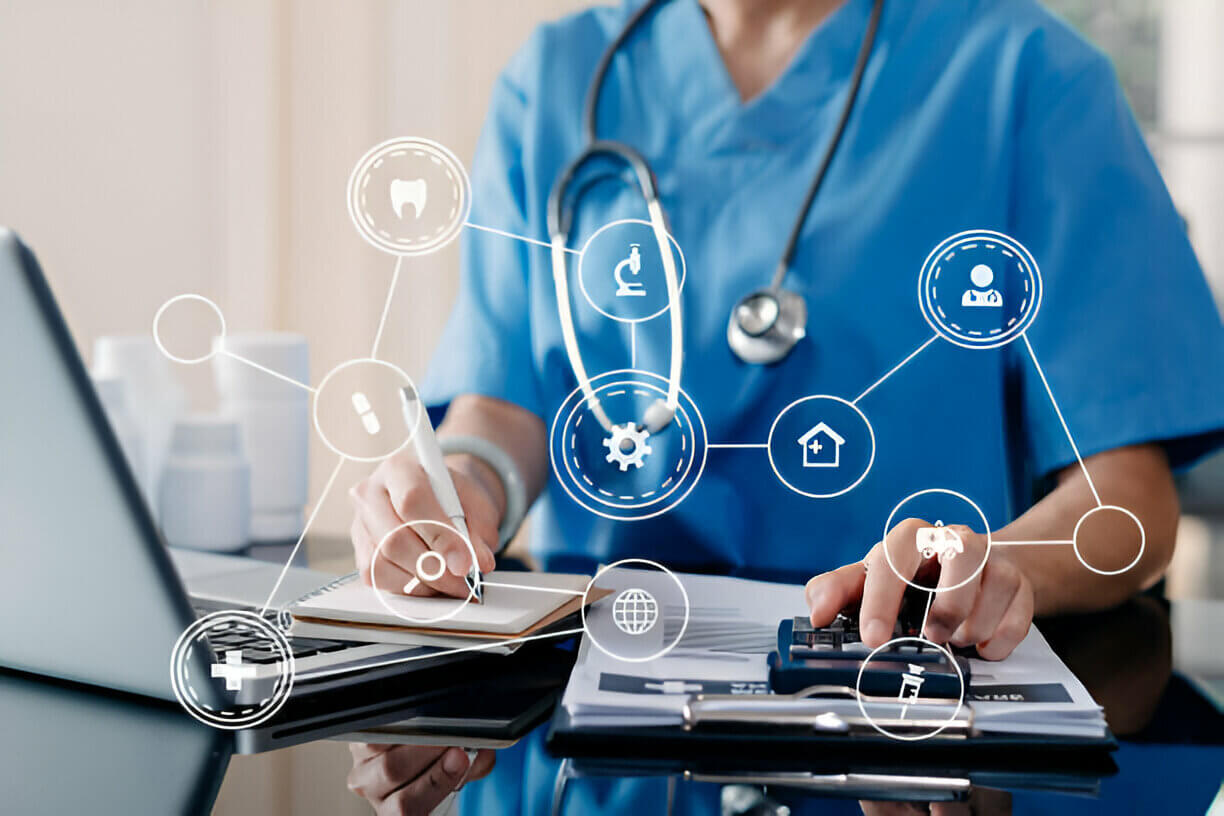The medical innovations of the Arab world have made great strides in recent years. From tremendous advances in surgery to research breakthroughs on genetics and chronic diseases, the Arab world has begun to recognize itself in the most promising contributions toward the developing global health landscape. These innovations must be available to international stakeholders, including partners, researchers, and institutions, to achieve command beyond regional borders. Language services, particularly Arabic to English translation services, serve to link Arab innovators with the rest of the world and are creating possibilities for collaboration, knowledge sharing, and market expansion.
Advancing Medical Innovation Across the Arab World
The Arab world has been marching into modernizing health care systems along with research and development investments. For instance, medical cities are being developed in places like the United Arab Emirates, Saudi Arabia, and Qatar, with biotechnological start-ups receiving boosted funds and encouragement from higher academic institutions for advanced research. Many of these efforts have resulted in the development of innovative medical processes, devices, and pharmaceutical products. To ensure the global community understands the implications of these medical innovations for international collaboration and competition, the medical content must be presented with clarity and precision.
Most global medical scientific communication is done in English; hence, the Arab gains in medical advances were translated improperly. This not only denies recognition to Arab expertise but also reduces the impact of the Arab initiative on world health.
Why Language Matters in Medicine
Accuracy plays a vital role in the field of medicine. Miscommunication may lead to serious blunders, which can include anything from an incorrect diagnosis to a wrong application of a medical device. The role of language in medicine is only about understanding the basics. It also plays a big role in keeping medical information clear and correct.
In the Arab world, most medical documentation, research papers, clinical trial results, and specifications for products have been originally written in Arabic. They have to undergo conversion into English to reach a target international audience. Therefore, they take assistance from Arabic to English translation services, which ensures medical accuracy paired with linguistic clarity. Scientific publications, regulatory submissions, product manuals, and training materials are examples where this holds paramount importance.
Enhancing the Commercial Potential of Arab Medical Products
Translation also underpins the commercialization process of Arab-developed medical technologies within the medical technology landscape. Clear and concise documentation in the target language is necessary to access the global markets, regardless of whether it is a new medical device, a pharmaceutical composition, or a diagnostic tool. US, EU, and other major markets’ regulatory bodies require documentation in English and often apply strict scrutiny during review.
The expert-level language translation can guarantee adherence to the original Arabic content to these standards. This, in turn, minimizes the chances of approval-related delays and any misunderstanding that can be detrimental to the entities concerned. Besides following the rules, an expert-level language translation of the marketing materials and user guide can help build trust with customers and make the brand stronger.
The Role of High-Quality Translation in Medical Ethics
There is a lot of importance given to ethics in the medical field. Translation, for example, of written informed consent forms, patient education materials, and clinical protocols must be translated accurately. Inclusion of study participants requires ensuring that every patient thoroughly understands what the study is about.
Poor translations can confuse, create mistrust, and wrangle over legal responsibilities. To ensure the global community grasps the implications of these medical innovations for international collaboration and competition, they need to be presented with clarity and precision. Here, the translation must be more than a translation of words. It should share the meaning in a way that both doctors and patients can understand and feel the same way.
Strengthening Public Health Communication
Translation also supports public health communication, especially in health crises such as pandemics or outbreaks. Arab health ministries and medical organizations often need to relay important information to both local and international audiences. Whether it be a new health regulation, treatment guideline, or vaccination protocol, what matters is that the information is available on time and that it conveys a precise message. It allows a rapid and smoothly organized transfer of information among the different regions so that the concerned authorities can more effectively and transparently manage the health crisis issue.
Empowering Local Talent for Global Impact
Opportunities are being created for linguists, translators, and medical writers in the Arab world because of the increasing demand for translations. Professionals who can handle medical terminologies along with the nuances of culture are increasingly becoming valuable assets in the global healthcare system.
By spending a little on training and certifying medical translators, Arab countries can help their local experts work better with others around the world and share their medical ideas globally. It brings back dividends in terms of better communication, as well as the preservation of quality information.
Conclusion
Translation is much more than a means of crossing linguistic borders; it is an agent of change. Arab medical innovation can help in the global distribution of research, the ethical sharing of clinical data, and the successful commercialization of emerging technologies. Arabic to English translations play a vital part in the process by ensuring that the information is conveyed with precision, context, and care.
Since the Arab world continues to defy the boundaries of medical science, this bridge of quality translation will continue to exist between regionally developed excellence and global recognition. Raising standards in language services and having multilingual infrastructures in place will enable Arab innovators to take their place in the global medical arena, contributing to better healthcare outcomes for all.
